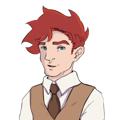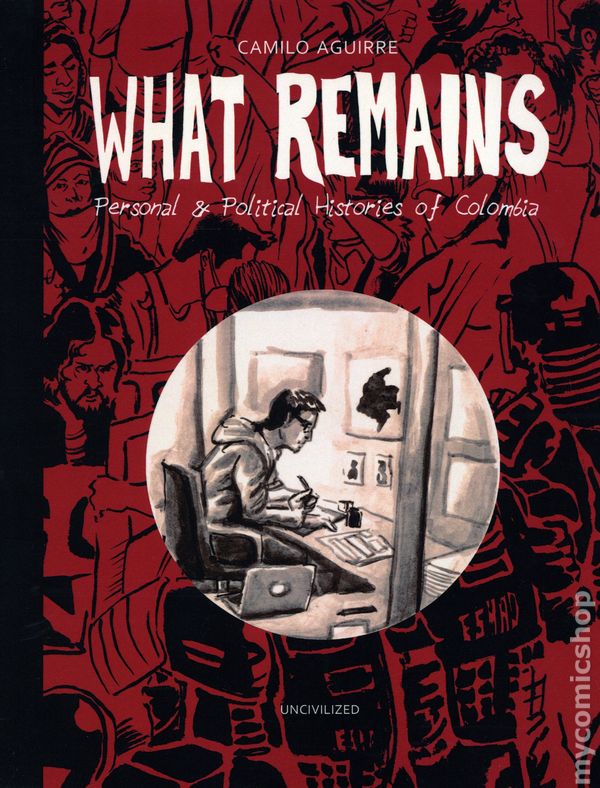Literally Graphic reviewed What Remains : Colombia by Camilo Aguirre
Personal Histories
4 stars
Content notes for a military dictatorship and all the the horrible things that obviously involves.
A book that almost no one has read, it was also kind of hard to track down author information. But according to his entry in the 2020 MCBA Prize "Camilo Aguirre is a Colombian artist whose practice shifts between comics and fine arts.
In his comics Camilo uses the elements of documentary format to tell non-fictional stories, implementing anecdotes and interviews from his immediate context, addressing the asking how his own subjectivity is constructed from the Colombian context, and reflecting on this context towards the ideas of globalization and belonging. Camilo has been the author of graphic novels such as Ciervos de Bronce (Bronze Deers, 2014), Calidez Aislada (Isolated Warmth, 2012) and has been coauthor of graphic novels such as Caminos Condenados (Condemned Paths, 2016) and La Palizua (2018). During his career in comics Camilo has been able to implement social research while working with communities in Colombia, in projects that involve addressing dispossession, violent conflict, historic memory and symbolic reparation.
In the fine arts field Camilo approaches drawing as a series of strategies more than a medium, including the association of ideas and the relationships between material, formalization and context as drawing tools. In his long term project Ciervos de Bronce (2011–), Camilo has developed a personal archive of letters, photography, interviews, paintings, comics, animations and photocopies documenting his father’s participation in the union activism during the nineties and addressing the state violent persecution towards union activists in Colombia. In his project In Blood (2014,2016) Camilo addresses the political implications in his family history by highlighting chapters of Colombia’s history through his great grandmother (Toni y la hacienda, 2014) and inserting his great grand uncle’s reimagined history in Colombia’s independence Museum: Casa del Florero (Radical, 2016)."
What kinds of keywords came to mind reading What Remains? Autobiography, journalism, social history, community, war and peace, resistance, and the military.
An interesting read, the start was my least favourite part. A series of short vignettes, it wasn't until we had jumped back and forth between the personal and the national a couple of times before I felt like I had a handle on what was going on.
Visually I thought What Remains was really strong and engaging.
As someone who is not terribly knowledgeable about Columbia, both historically and presently, I can't really commentate at all on Aguirre's perspective. That said, this book does obviously fall on the not afraid to be personal side of things, which I do appreciate. We get a pretty clear idea of who Aguirre is as a person, and there's no false notions of neutral objectivity going on. Aguirre also goes out of his way to pull in other people's stories as well, so it was far from one note.
Perhaps most interested in the economic and party politics of Columbia, we get a sprinkling of gender diversity and Aguirre tells a story about his brief time as a street artist, where a trans sex worker probably saved his ass from paramilitary forces. An iota of representation but more then I expected.
And this is the risk I run into when I don't write these reviews immediately after reading, but I don't recall any discussion of ability/disability. Which is the status quo, but at the same time violent conflict is an intrinsically disabling event so it would certainly not have been difficult to touch on in some way. You would think.
Concluding thoughts. I hope more people pick up this book, and tell me what they think about it. Would rate four out of five stars.

